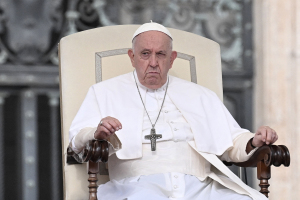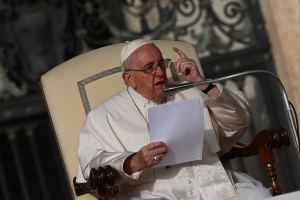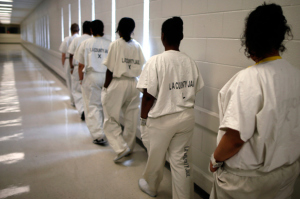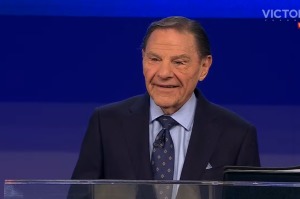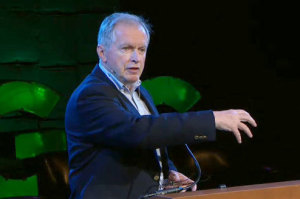Christians, non-Hindus in India denied gov't aid during pandemic, groups say
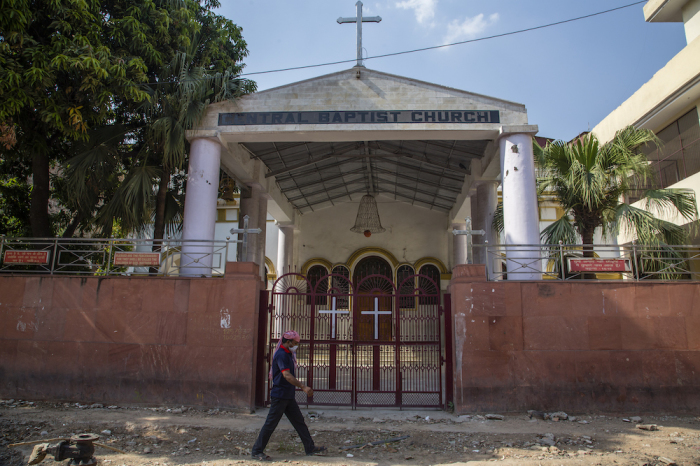
As many Christians and other non-Hindus in India are being denied government-issued food rations amid the coronavirus pandemic, a coalition of multi-faith representatives are calling on President Donald Trump to hold the country’s leaders accountable.
On Monday, Save the Persecuted Christians in partnership with the Federation of Indian American Christian Organizations delivered a letter to Trump, Secretary of State Mike Pompeo, and World Bank Group President David Malpass.
The letter, signed by multi-faith representatives from 34 organizations and ministries, argues that the World Bank must seat an accountability committee to oversee and monitor India's use of the $1 billion aid package allocated to the country for COVID-19 related to testing and management.
John Prabhudoss, FIACONA chairman, told The Christian Post that the organization has received “several reports” of religious minorities in India being mistreated during the pandemic.
“Specifically, many are being left out of the programs created to help the people during this crisis,” he said. “Obviously, there are several systemic flaws in the Hindu nationalist government's approach to the problem. Because of those fundamentally flawed approaches, Christians and other religious minorities are suffering but they are not the only victims. Various sections of economically vulnerable people are also suffering due to these fundamentally flawed attitudes of the Hindu nationalist government.”
The letter, he said, is urging the Trump administration to “put in place a mechanism to address, if not reduce, the drawbacks in the approach of the Hindu nationalist government and possible misuse of funds given by the World Bank to India.”
“Specifically, we are recommending them to seat a committee made up of multi-faith leaders and eminent economists in India as a watchdog that will report directly to the World Bank,” he said. “They can oversee how this money is spent instead of leaving it all in the hands of a government that has already proven to have a flawed approach.”
More than 1.3 billion people across India have lived under lockdown for more than three weeks. The country recorded 4,213 new infections from Sunday morning to Monday morning, taking its total to 67,152, according to the Ministry of Health and Family Welfare. So far, 2,415 people have died.
The letter cites a report from The Scroll in India, which highlights how the COVID-19 lockdowns have disproportionately affected migrant workers. The report documents 189 lockdown-related deaths, including suicide, death during the journey that migrant workers made to their home states, hunger and police brutality.
The detainment of people of certain non-Hindu religious faiths in isolation facilities even when they do not test positive for the virus, the letter claims, “is due to malicious intent, and religious, bias tacitly promoted by the Modi government.”
Prabhudoss pointed out that constituents of the Hindu nationalist party are always religiously Hindu upper caste, linguistically Hindi speaking, and economically middle class.
“They are the backbone of the Hindu party,” he said. “No wonder all their government policies are also created by keeping only this particular segment in their mind. Unfortunately, others do not show up on the government radar. The evidence of it was loud and clear last month when tens of millions of manual labor from unorganized sector in the cities, who happen to be mostly lower caste, migrant workers from villages, were left to fend for themselves.”
Citing “many reports and eyewitness accounts coming from India in regard to COVID-19-related abuses,” the two groups say they “feel strongly that an advisory level monitoring committee must immediately be empaneled by the World Bank, either here in Washington or in India.”
Prabhudoss told CP that most of the World Bank funds are meant for testing and managing the infections. However, even in testing for the virus, reports show that officials are “unnecessarily singling out poor religious minorities for targeted testing and vilification in the media.”
“Such propaganda encouraged by the Hindu government is creating an enormous level of friction and tension in society. It is like a powder keg that could explode at any time. If that happens, all hell will break loose,” he warned.
Additionally, India’s programs primarily help large businesses affiliated with the Hindu party — not the poor, religious minorities, or women, Prabhudoss said.
“Small businesses owned by minorities are being subject to targeted closures,” he said. “Several of Mr. Modi’s colleagues in the government have openly called for boycotting businesses owned by religious minorities during this pandemic.”
Prabhudoss also expressed concern over Modi’s relief fund, the “Prime Minister Cares Fund,” which he argued is set apart and not subject to accountability or transparency from which he can direct aid to whomever he pleases.
“That means the details of this fund, like how much money is in the fund, or how it is spent, who is getting it, are all secret,” he said. “Prime Minister Modi's office has already denied requests for any details about this fund ... The problem with this is that this kind of practice by Mr. Modi is creating room for concerns about the possibility of even the World Bank funds being misused by him in general.”
In the letter, STPC and FIACONA note several specific suggestions “to avoid the misuse and abuse of the funds meant for dealing with the coronavirus emergency.” They call for the monitoring and investigating of reports pertaining to “religious discrimination, corruption, virus testing protocols, the discrepancies in the data disclosed by the government, reports about unauthorized detainment of people testing negative to the virus, proper and timely medical care of those detained, effectiveness of the distribution of relief material, and report to the World Bank.”
“Our suggestions are purely a precaution for all of us so that we won't have to see further deterioration and misuse of funds in an already difficult situation in India,” Prabhudoss said.
Persecution watchdog Open Doors, which ranks India at No.10 on its 2020 World Watch List of countries where it's most difficult to be a Christian, previously warned that the lives of thousands, if not millions, of persecuted Christians are at risk due to the lockdown, which is set to expire this Sunday.
Shalom, one of Open Doors’ partners on the ground, told the organization that Jia, a local church pastor, told him he personally knows at “least 20 to 30 pastors who are starving because of the lockdown.”
The group also posited that amid the pandemic, Christians face more opposition than ever from their communities because of their faith. According to the organization, numerous reports have surfaced of Christians being falsely accused, threatened and attacked in recent weeks.
“There are many [Christians in India] who are [able] to use online streaming of worship, sermons and prayers, but the majority of the Christians in the rural areas are facing threats and persecution amid the lockdown,” a local partner told the organization.
“We are receiving news of persecution incidents from many areas, even in this situation where people have been ordered to stay inside their homes. In fact, we believe that during this phase of lockdown, Christians are suffering even more than before, since most of them have to now combat economic problems as well as the opposition and hatred from the community.”
















